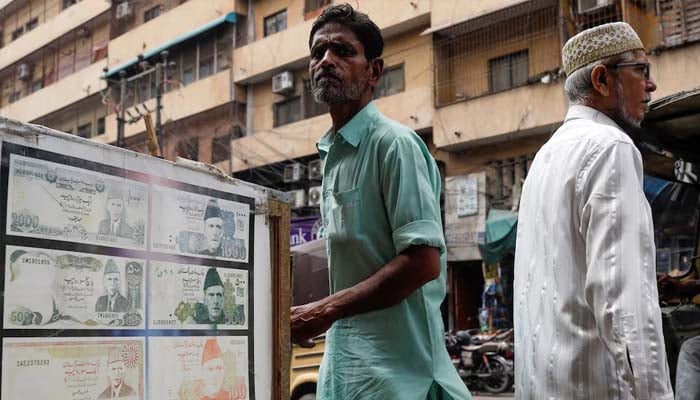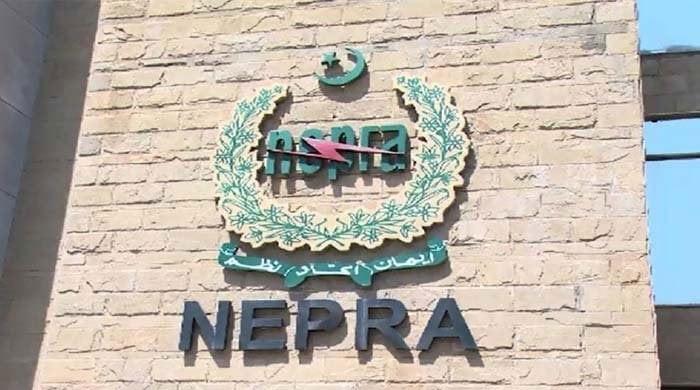Survey reveals boost in business confidence despite economic, political challenges
41% of surveyed businesses see PML-N govt outperforming PTI regime, 21% believe both are similar
February 18, 2025

- Survey notes significant reduction in pessimism among businesses.
- 55% businesses satisfied with their current business performance.
- 38% viewed the current government as worse than its predecessor.
Demonstrating a steady revival of sentiment, business morale among stakeholders has improved markedly, accompanied by an optimistic economic outlook, a survey conducted by Gallup Pakistan showed on Tuesday, as the country seeks to set its growth trajectory on course through tough reforms.
The economy grew by 0.92% in the first quarter of the fiscal year 2024-25, despite a contraction in the industrial sector, according to data released by the Pakistan Bureau of Statistics (PBS) last month.
A survey of business owners in the fourth quarter of 2024 — as part of the Gallup Business Confidence Index (BCI) report — revealed a notable reduction in pessimism among businesses about how they perceive their current prospects as well as the overall direction of the country.
Nearly 55% of surveyed businesses were satisfied with their current business performance, whereas 61% were optimistic about the future.
On the political outlook, 41% of surveyed businesses felt the Pakistan Muslim League-Nawaz (PML-N) government performed better than the previous Pakistan Tehreek-e-Insaf (PTI) government, while 21% considered both governments to be similar.
However, 38% viewed the current government as worse than its predecessor.
This is the fourteenth edition of Gallup Pakistan's quarterly business confidence survey. The Business Confidence Index (BCI) serves as a key gauge of the sentiments within the business community and is widely used by policymakers around the world.
The surveyors selected 482 medium and large businesses from over 30 districts of Pakistan across different sectors and fields, according to their share in the national economy.
Around 55% of surveyed businesses report doing well (very good or good), marking a 10% improvement from second quarter of the last year.
Additionally, the survey noted a 7% decrease in businesses that termed their situation as "very bad" — the manufacturing sector has shown a slower recovery compared to services and trade.
Compared to the second quarter, 19% more businesses in the fourth quarter of 2024 think that their business will be better off down the road.
The survey showed that 61% were optimistic about their growth in the future, while 40% expected things to get worse. However, the Net Future Business Confidence score jumped 36% from the second quarter.
In the period under review, about 20% fewer businesses believe that the country is heading in the wrong direction. The overall trend for the past few quarters has been consistently negative; however, there has been some improvement in the current quarter.
Similar to the second quarter of 2024, inflation is the most cited problem in the fourth quarter that 30% of businesses would like the government to solve. The proportion of businesses that want the government to solve or decrease taxation decreased from 20% to 14%.
Consumer inflation rate fell to its lowest in more than nine years, dropping to 2.4% year-on-year in January, the statistics bureau said on Monday.
Inflation has cooled significantly, easing from 28.3% in January 2024. Consumer prices in January rose 0.2% from the month before, according to the PBS.
According to the survey, 33% of businesses said that their workforce decreased in the fourth quarter by 10% compared to the second quarter. More service-providing businesses than manufacturers and traders laid off their workforce.
In the quarter under review, 56% of businesses reported ‘no’ load-shedding on the day of the survey, while 44% did. Gallup found that 17% fewer businesses in the fourth quarter reported load-shedding on the survey day (the second quarter covered summer months and the fourth, winter, and the results are consistent with expectations).
Around 34% of businesses reported having to pay bribes to run their business in the past six months. More traders reported having to pay speed money (50%) than manufacturers (35%) and service providers (33%).
Finally, the majority (51%) of business owners surveyed did not consider themselves risk-takers, while roughly half (49%) described their businesses as at least somewhat risk-taking.
he South Asian country is navigating a challenging economic recovery path and has been buttressed by a $7 billion facility from the International Monetary Fund (IMF) in September.











